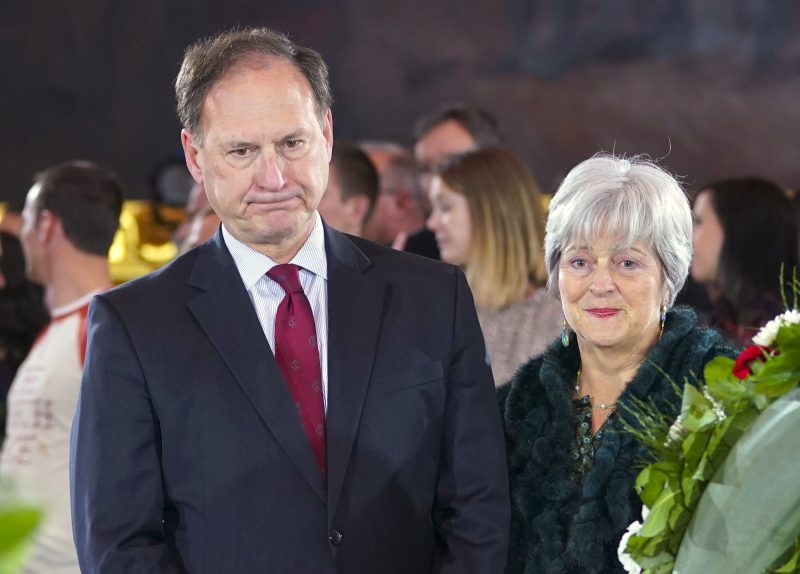In a recent turn of events, the wife of Supreme Court Justice Samuel Alito sparked a public debate after displaying an upside-down American flag outside their residence – a symbol traditionally associated with distress or a sign of dire emergency. The controversial act by Martha-Ann Alito ignited a flurry of discussions and garnered both support and opposition from various segments of society.
The act of hoisting an American flag upside down dates back to maritime traditions, where it is used to signal a vessel’s distress. In the broader context of the United States, displaying the flag in such a manner is seen as a symbolic gesture, conveying a message of adversity or dissatisfaction with the prevailing conditions. Justice Alito’s wife’s decision to use this powerful symbol has drawn attention to perceived injustices and challenges facing the nation.
Critics argue that the upside-down flag is inappropriate and disrespectful, especially coming from the spouse of a high-ranking government official. They view it as a provocative and incendiary gesture that undermines the integrity of the national flag and disrespects the sacrifices made by those who have served under it. Some have gone as far as to accuse Mrs. Alito of politicizing a symbol that should be above partisan divides.
On the other hand, supporters of Martha-Ann Alito’s actions defend her right to freedom of expression and praise her courage in speaking out against perceived injustices. They argue that in a democracy, individuals have the right to peacefully protest and raise awareness about issues that are important to them. By using the upside-down flag as a form of protest, Mrs. Alito has brought attention to critical issues that she believes require urgent attention.
The controversy surrounding the upside-down flag incident highlights the complex relationship between patriotism, dissent, and freedom of speech. While the American flag is a potent symbol of unity and national pride, it is also a powerful emblem that can be used to communicate a range of messages – including dissent and protest. In a diverse and pluralistic society like the United States, differing viewpoints and expressions of patriotism are to be expected.
As the debate continues to unfold, it serves as a reminder of the importance of open dialogue and respectful discourse in addressing societal challenges. While opinions on the appropriateness of using the upside-down flag as a symbol of distress may differ, one thing remains clear – the need for mutual understanding and empathy in navigating complex issues that impact us all. Ultimately, it is through respectful engagement and constructive dialogue that progress and positive change can be achieved.


























